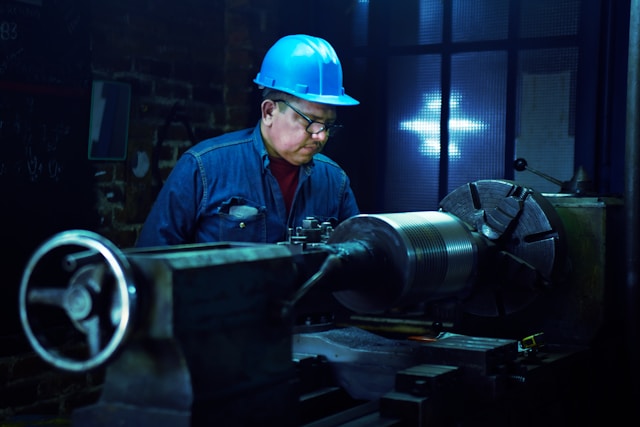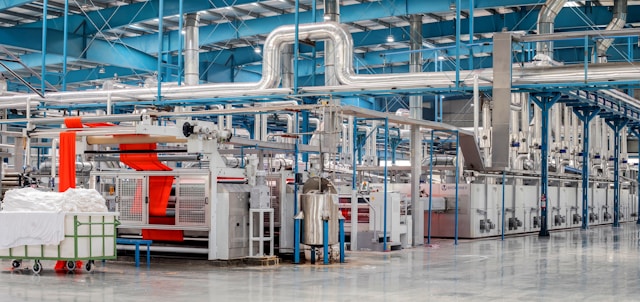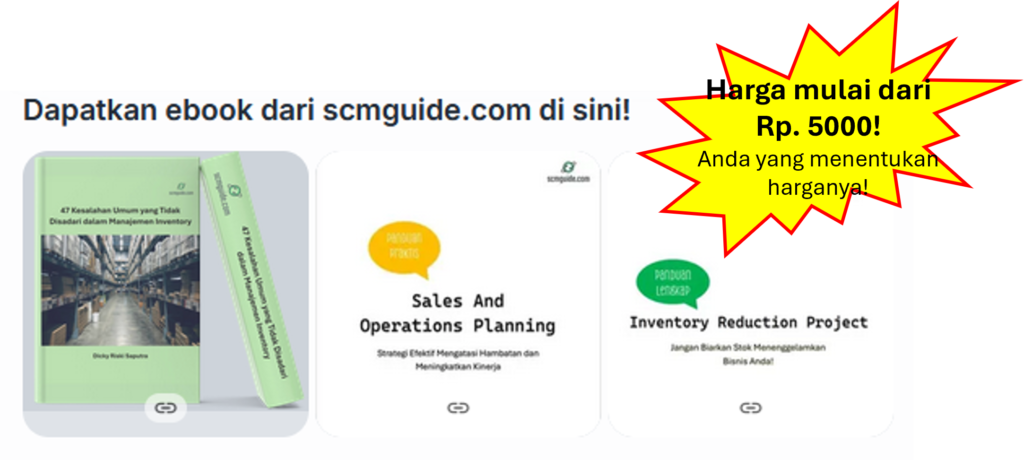In manufacturing and production, planning carefully is super important for success. But sometimes, even the best plans can run into problems that stop them from working smoothly. Let’s look at some common reasons why production plans go off track.
Before we go further into this topic, don’t forget to follow my LinkedIn account. You’ll get more helpful insights on supply chain management there.
Table of Contents
Inadequate Resource Allocation
Production plans can hit bumps when there’s not enough of what’s needed to make things run smoothly. This can mean not having enough people, materials, or machinery. It happens for different reasons, like guessing wrong about how much stuff is needed or not managing inventory well.
For example, if a plan counts on selling lots but sales end up slower than expected, there might not be enough materials when it’s time to make things. This can cause delays or even stop production altogether.
And when resources are short, it’s not just a problem for the factory. It can mess up the whole chain of making and delivering stuff, which affects customers too.
If there’s not enough material, production slows down or stops, meaning orders might not get delivered on time.
Also, if there aren’t enough skilled workers or machines break down, it costs more and the quality of what’s made might not be as good.
So, it’s important to figure out why resources are running short and fix it, whether by getting better at guessing, managing stuff better, or improving how demand is predicted.
Unforeseen Supply Chain Disruptions
Global supply chains are like super complex webs that connect everything together, but they’re also super sensitive to all kinds of problems, whether they’re caused by nature or people.
Natural disasters like earthquakes or floods can mess up roads or factories, making it hard to move stuff around. And things like fights between countries or changes in rules can also cause big headaches, slowing down how fast things can move across borders.

These problems can mess up production plans because it’s tough to get the stuff needed to make things.
When supply chains get messed up, it’s not just one company that feels the pain. It can mess up whole industries and even whole economies.
When stuff doesn’t get made on time, it means people might have to wait longer for what they ordered, which can hurt a company’s reputation.
Plus, it can cost a lot of money and show weaknesses in how companies manage their stuff and work with their suppliers.
So, it’s super important for businesses to think ahead and be ready to deal with problems in the supply chain to keep things running smoothly, especially in today’s world where everything’s connected and things can change fast.
You might also like:
- 2 Essential Criteria for Choosing the Right Material Supplier
- How Can We Ensure that Suppliers Do Not Deliver the Required Materials Late to the Manufacturing Plant?
Machinery Breakdowns
When equipment breaks down in a factory, it’s a big problem that can stop everything and cost a lot of money. Without backup plans or extra machines, companies might struggle to start making things again quickly, which means orders might be late and money could be lost.
Not having backup options makes factories even more at risk of things going wrong, leaving them vulnerable to losing money when equipment fails.
To avoid these problems, it’s super important for factories to take care of their machines regularly. Doing things like checking them often, keeping them greased up, and making sure they’re working right can help catch problems before they get really bad.
Also, using fancy technology that predicts when machines might break down can help factories fix things before they cause big issues.
By taking these steps and being proactive about maintenance, factories can make sure things run smoother and don’t get slowed down by broken machines.
Lack of Communication and Coordination
Good communication and teamwork are super important for factories to work well. When everyone talks to each other and shares information, it helps everyone know what they need to do and work together smoothly.
But when there’s not good communication, things can get messy, and people might not know what’s going on or what they should be doing.

For example, if the people who buy materials don’t know when things need to be made, it can cause delays and problems with getting the stuff needed to make things.
Also, when communication is good, it builds trust and helps people work better together. By making sure everyone knows what’s happening and sharing ideas, factories can work more efficiently and come up with new ways to make things even better.
Using technology to talk and share information can also make it easier for everyone to stay on the same page and know what’s happening.
So, by making sure communication is clear and everyone works together, factories can run smoother and make improvements all the time.
Poor Risk Management
Not planning for problems in making stuff can cause big issues for businesses. Things like changes in what people want to buy or new rules can mess up production plans and make it hard to keep up with making things.
For example, if people suddenly stop wanting a product, it can be tough for a business to adjust and make less of it.
Also, if there are new rules about how things can be made, it can cost more and take longer to make stuff.
To avoid these problems, businesses need to be ready for anything that might go wrong. They can do this by looking for potential problems and making plans to deal with them before they happen. This might mean finding different suppliers, keeping extra stuff in case of emergencies, or using technology that can change quickly.
By keeping an eye on what could go wrong and being ready to adjust, businesses can make sure they can keep making stuff even when things get tough.
You might also like:
- Navigating Fluctuating Raw Material Prices: Challenges for Procurement Professionals
- 5 Tips for Overcoming the Challenges of Assessing Quality as a Procurement Officer
Unrealistic Timelines and Targets
Trying to do too much too quickly can cause big problems for businesses trying to make things.
When goals are set really high without thinking about what’s actually possible, it puts a lot of pressure on the people doing the work. This can lead to mistakes, make the quality of what’s made not so good, and make people feel really stressed out and tired.
And when people are too stressed and tired, they can’t work as well, which makes it even harder to reach those big goals.

To avoid these problems, businesses need to find a balance between aiming high and being realistic. This means looking at what they can actually do and how much time and resources they have.
By talking to the people who actually do the work and thinking carefully about what’s possible, businesses can set goals that they can actually reach.
Also, making sure everyone works together and feels supported can help keep morale up and make sure everyone stays on track.
So, by finding the right balance, businesses can make sure they’re working efficiently and keeping their employees happy and healthy.
Human Error
Even though machines help a lot in making things, people can still make mistakes that mess up production plans. Even with fancy machines doing a lot of work, humans still need to watch over things and make sure everything runs smoothly.
But because people can sometimes mess up, it can cause problems in even the best plans. Things like typing in the wrong numbers, not understanding instructions, or making bad decisions can mess up schedules, make things not so good, and waste resources.
To fix these problems, businesses need to do a few things. First, they can use technology to help catch mistakes before they cause big problems.
Also, making sure workers know how to use machines well and fixing mistakes quickly can help.
But it’s also important to make sure everyone feels responsible for doing things right and can talk about problems openly.
By doing all these things, businesses can make sure they run smoothly and make good products.
Conclusion
To wrap it up, planning how things are made is super important for a company to do well, but it’s not enough on its own.
Businesses also need to be ready for problems that might pop up and have plans to deal with them.
By looking at things like how they use resources, how strong their supply chain is, how well they communicate, and how they handle risks and goals, companies can make sure their plans are solid.
By thinking about everything from the inside out and outside in, companies can make sure they make things smoothly, keep customers happy, and stay competitive in a changing world.
I hope you find it helpful!
Please share this article with your colleagues so they can also benefit. For more insights on supply chain management, follow my LinkedIn account. You’re free to use all articles on this blog for any purpose, even for commercial use, without needing to give credit.

 by
by 


